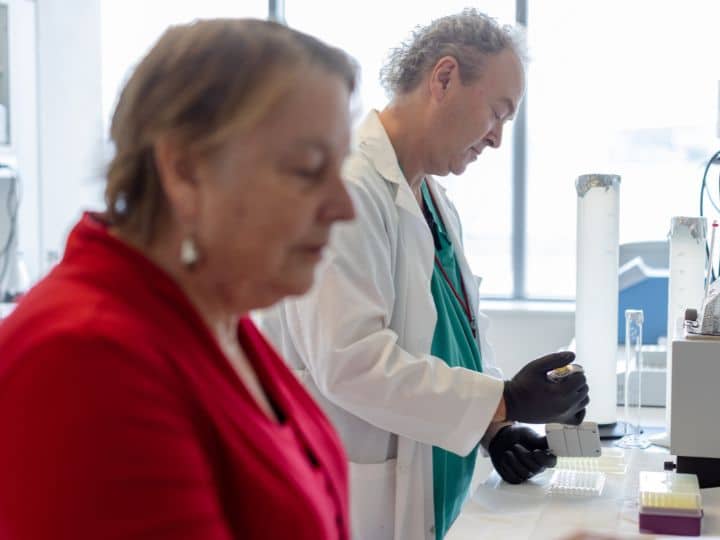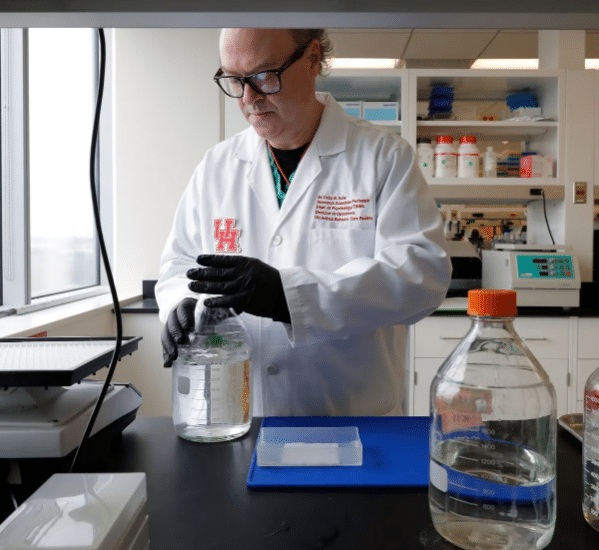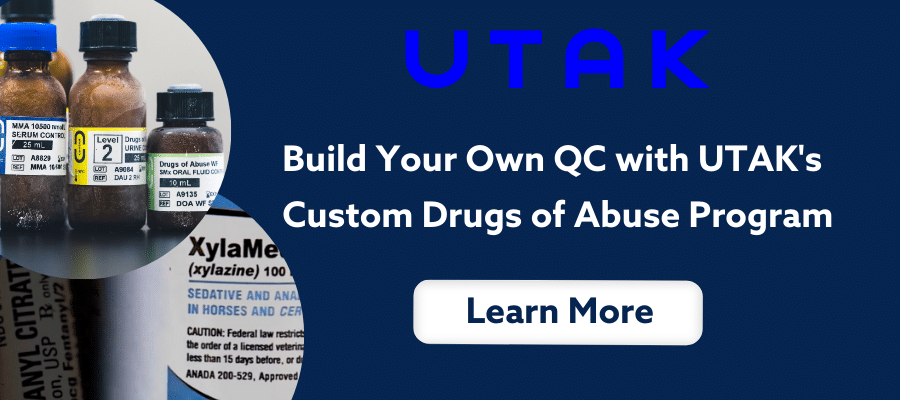
In a significant breakthrough, a research team led by the University of Houston has developed a vaccine that targets the highly potent synthetic opioid fentanyl, potentially blocking its ability to and enter the brain and produce a “high.”
This groundbreaking discovery has profound implications for addressing the nation’s opioid epidemic, particularly as a relapse prevention agent for individuals striving to overcome opioid use disorder (OUD). With an estimated 80% relapse rate among those dependent on opioids, this vaccine could revolutionize addiction treatment approaches.
The Devastating Impact of Fentanyl
Synthetic opioids, including fentanyl, have contributed to a devastating crisis, with over 150 people dying daily from synthetic opioid overdoses.
Fentanyl is 50 times stronger than heroin and 100 times stronger than morphine. Just as little as 2 milligrams of fentanyl can be fatal, and that’s why there is an urgent need for effective interventions to combat its misuse.

The Fentanyl Vaccine: A Game Changer in Addiction Treatment

Lead author Colin Haile, a research associate professor at the University of Houston, explained the potential impact of their findings on addressing opioid misuse. Here is a summary:
The vaccine stimulates the production of anti-fentanyl antibodies, which bind to consumed fentanyl, preventing it from entering the brain and allowing elimination from the body through the kidneys.
By blocking the euphoric effects of fentanyl, individuals can regain sobriety and overcome addiction. Haile, along with his team, plans to manufacture a clinical-grade vaccine and initiate human clinical trials in the near future, paving the way for potential therapeutic breakthroughs.
Lab studies involving immunized rats have yielded positive results. The vaccine did not induce any adverse side effects, further reinforcing its safety profile. The vaccine’s anti-fentanyl antibodies specifically target fentanyl and its derivatives without cross-reacting with other opioids, such as morphine. This means that vaccinated individuals can still receive pain relief treatment with other opioids if necessary, ensuring their comprehensive care.
The Crucial Role of the Vaccine Adjuvant
The fentanyl vaccine incorporates an adjuvant derived from E. coli called dmLT. This adjuvant molecule enhances the immune system’s response to vaccines, playing a critical role in the vaccine’s effectiveness as an anti-addiction treatment.
Collaborators at the Tulane University School of Medicine developed the adjuvant, proving essential to the vaccine’s efficacy. The research team also includes experts from Baylor College of Medicine and Michael E. DeBakey Veteran’s Affairs Medical Center, underlining the collaborative effort in advancing addiction treatment approaches.
Current treatments for OUD, such as methadone, buprenorphine, and naltrexone, vary in effectiveness depending on formulation, compliance, and access to medications.
In Conclusion…
The University of Houston’s development of a fentanyl vaccine marks a significant milestone in the battle against opioid misuse and addiction.
With its potential to block the euphoric effects of fentanyl and prevent its entry into the brain, this vaccine offers hope for individuals struggling with OUD and serves as a powerful tool in preventing relapses. Additionally, the vaccine’s ability to target fentanyl specifically, without interfering with other opioids, ensures that patients can still receive necessary pain relief treatments.
As the research team moves forward with manufacturing clinical-grade vaccine and initiating human clinical trials, the path toward FDA approval is becoming clearer.
Did you know that UTAK offers fully customizable Drugs of Abuse Quality Controls? The good news is, we just added Xylazine as an available analyte with our Custom Quality Control Program. Click here to learn more.

